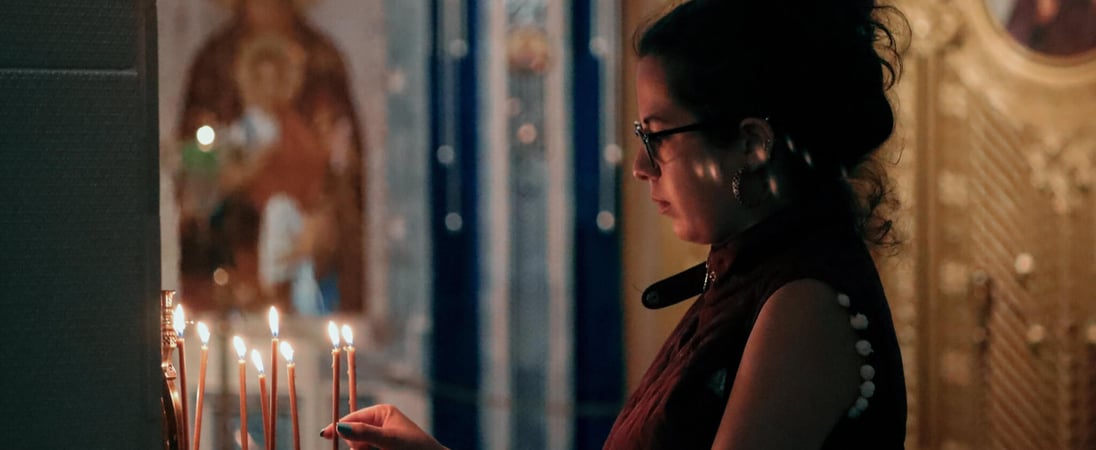
Orthodox Good Friday
Orthodox Good Friday is a deeply revered day among Orthodox Christians, observed to honor the crucifixion of Jesus Christ.
This solemn day falls on different dates each year, adhering to the Julian calendar, unlike many Western Christian churches that use the Gregorian calendar. In 2024, for example, it will be observed on May 3rd, marking a time of reflection and remembrance of Jesus’ sacrifice.
This day is characterized by various spiritual practices aimed at contemplating Jesus’ profound sacrifices. Many Orthodox Christians participate in church services where the Gospels are read and hymns are sung. These services recount the painful events of Jesus’ crucifixion and his final moments on the cross.
During the day, people fast, pray, and mourn. Rituals might include venerating a cross or participating in processions that symbolize Jesus’ journey to the crucifixion site.
The significance of Orthodox Good Friday lies in its focus on spiritual reflection and penance. The faithful meditate on their lives and seek forgiveness, much like the biblical accounts of the thieves crucified alongside Jesus, who sought mercy.
Through these observances, participants draw closer to Christ’s teachings and sacrifice, finding deeper spiritual renewal and connection.
History of Orthodox Good Friday
Orthodox Good Friday has a rich history that dates back to the early days of Christianity. Originally known as “Pascha of the Cross,” it marks the day Jesus Christ was crucified, an event central to Christian theology. This day was first observed around the year A.D. 33, the date traditionally believed to be that of Jesus’ crucifixion.
The significance of this day was formally recognized by the Church in the 4th century, specifically at the Council of Nicaea in 325 A.D., where the date for Easter—and by extension, Good Friday—was established according to the Julian calendar, which is still used by the Orthodox Church today.
This difference in calendars is why Orthodox Good Friday often occurs on a different date than Good Friday observed by Western Christian churches, which use the Gregorian calendar.
Over the centuries, Orthodox Christians have continued to observe Good Friday with solemnity and reverence.
The day includes fasting, prayer, and liturgical services that reflect on Jesus’ suffering and crucifixion. These traditions commemorate Jesus’ death and serve as a spiritual preparation for celebrating His resurrection on Easter Sunday.
How to Celebrate Orthodox Good Friday
Join a Candlelit Procession
Nothing says Good Friday quite like the solemn glow of candlelight. In many Orthodox traditions, believers join in processions, carrying candles through the streets or around their churches.
Why not light your candle and remember the historical and spiritual journey of this day? It’s a luminous way to reflect on the themes of sacrifice and redemption.
Decorate with a Personal Touch
Engage in the deeply symbolic act of decorating the Epitaphios, the representation of Christ’s tomb. You can bring spring flowers into your home, maybe even create your small shrine.
This act of decoration can serve as a meditative practice to honor the burial and remember the resurrection that is to come.
Savor the Silence
Orthodox Good Friday is a perfect time for silence and reflection. Try turning off your gadgets and sitting in quiet contemplation.
Reflect on the spiritual significance of the day, or perhaps read passages from the Gospels that recount the events of Christ’s Passion. This could be a peaceful way to connect more deeply with your faith and the solemnity of the occasion.
Engage in Fasting and Prayer
Fasting is a core part of Good Friday observance, symbolizing mourning and spiritual preparation for Easter.
Consider observing a strict fast as a form of spiritual discipline, and use the time you might spend preparing meals to pray or meditate. This can deepen the personal significance of the day and enhance your spiritual journey.
Perform Acts of Kindness
Good Friday is not only a day of mourning but also a time to spread love and kindness. Consider performing acts of charity, such as donating to a shelter or helping out those in need.
Such good deeds resonate deeply with the sacrificial love that Good Friday commemorates.
Also on ...
View all holidaysNational Animal Crackers Day
A classic favorite snack for children of generations, simply take some time to enjoy some sweet, fun animal crackers on National Animal Crackers Day.
International Amateur Radio Day
The “International” in “International Amateur Radio Day” honors how amateur radio-ers pioneered fast, immediate global connection in the 20th century.
National Exercise Day
Engaging in physical activity invigorates the body, fostering vitality and well-being with each rhythmic movement and breath.








